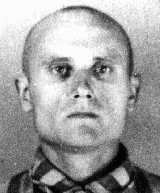You searched for: ust众筹理财项目定制开发【tg���������@ek7676】平台包网搭建unit众筹理财项目定制开发【tg���������@ek7676】平台包网搭建gnogu7gctt
<< Previous | Displaying results 1391-1400 of 1751 for "ust众筹理财项目定制开发【tg���������@ek7676】平台包网搭建unit众筹理财项目定制开发【tg���������@ek7676】平台包网搭建gnogu7gctt" | Next >>
-
Thomas Buergenthal
ID CardThomas Buergenthal was born in May 1934 in the town of Ľubochňa, Czechoslovakia. His parents, Mundek and Gerda, were Jews who had fled the Nazi rise to power in Germany. In Ľubochňa, Mundek ran a hotel that welcomed other refugees and exiles fleeing Nazi persecution. 1933-39: In 1938-1939, Nazi Germany dismantled the country of Czechoslovakia and created the satellite state of Slovakia. As a result, Thomas and his family fled from Slovakia to neighboring Poland. They hoped eventually to immigrate to…
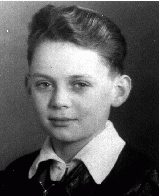
-
Walter Schnell
ID CardWalter was born to a Jewish family in the German town of Strehlen, 25 miles south of Breslau. His family's crystal business was prominent in the town for more than 100 years. Walter's parents sent him to Berlin in the mid-1920s to learn the porcelain trade. He returned to Strehlen in 1926 to help his family run the business. 1933-39: In 1937 Walter's family moved to Breslau. After the German pogroms of 1938 [Kristallnacht, Night of Broken Glass], he was deported to Buchenwald. When he arrived he was…
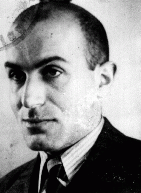
-
Elias (Elya) Grosmann
ID CardElias was born in a small town in the hill country of northeastern Slovakia. His family was Jewish, and he grew up in a religious home in which both Yiddish and Hungarian were spoken. His father was a peddler and his mother ran a small general store. Besides attending public schools, Elias received a formal Jewish education and attended Medzilaborce's rabbinical academy. 1933-39: The townspeople were mostly Jewish and worried about Nazi Germany. The German annexation of Austria in March 1938 alarmed them.…
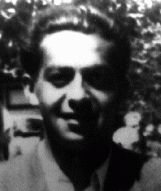
-
David Bergman
ID CardDavid was born to religious Jewish parents in a small town in Ruthenia, Czechoslovakia's easternmost province, which had been ruled by Hungary until 1918. Located in the Carpathian Mountains, the town was so isolated that news from the rest of the country would arrive by a drummer who would read the news in the town's central square. David's father worked as a tailor and his mother was a seamstress. 1933-39: While David's parents worked, he would be at home having a good time. They had a beautiful home…
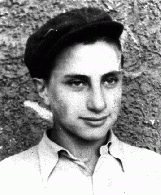
-
Chava Cherniak Biber
ID CardChava's mother died when she was 2, and Chava went to live with her grandfather, who was a rabbi in the village of Matsiov. Her grandfather's second wife welcomed Chava. After first studying at a Polish public school, Chava attended a Jewish day school. When Chava was a teenager her adopted grandmother died, and Chava took over managing her grandfather's household until he remarried. 1933-39: Chava's grandfather's third wife was an unsympathetic woman. After she came to their home, Chava wanted to be…
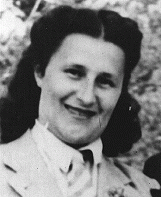
-
Paula Garfinkel
ID CardPaula was one of four children born to a religious Jewish family in Lodz, an industrial city with a large Jewish population. As a child, Paula attended public schools and was tutored at home in Jewish studies three times a week. Her father owned a furniture store. 1933-39: Paula, her brothers, and sisters spent a lot of time at the clubhouse of their Zionist group, Gordonia. Their group believed in humanistic values, Jewish self-labor, and in building a Jewish homeland in Palestine. Paula liked to work…
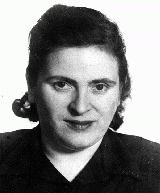
-
Inge Auerbacher
ID CardInge was the only child of Berthold and Regina Auerbacher, religious Jews living in Kippenheim, a village in southwestern Germany near the Black Forest. Her father was a textile merchant. The family lived in a large house with 17 rooms and had servants to help with the housework. 1933-39: On November 10, 1938, hoodlums threw rocks and broke all the windows of Inge's home. That same day police arrested her father and grandfather. Inge, her mother and grandmother managed to hide in a shed until it was…
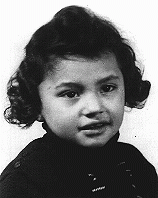
-
Gerda Blachmann
ID CardGerda was an only child of Jewish parents. They lived in Breslau, a large industrial city on the Oder River. Before World War II, Breslau's Jewish community was the third largest in Germany. Her father worked as a salesman for a large hardware and building materials company. Gerda attended public school until age 9 when she was admitted to a Catholic girls' school. 1933-39: Gerda walked through the city to see the aftermath of a pogrom. The windows of Jewish shops had been shattered. A torched synagogue…
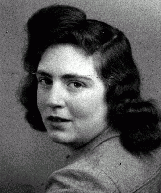
-
Lidia Lebowitz
ID CardThe younger of two sisters, Lidia was born to Jewish parents living in Sarospatak, a small town in northeastern Hungary. Lidia's parents owned a successful dry goods business. At the time, ready-made clothes were still rare in the countryside. Townspeople and local farmers would purchase fabric at the Lebowitz store and then take it to their tailor or seamstress to be sewn into clothes. 1933-39: Lidia was 2 when her Aunt Sadie, who had immigrated to the United States many years earlier, came to visit…
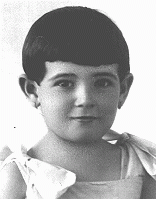
-
Rev. Marian Jacek Dabrowski
ID CardMarian was raised by Catholic parents in Niewodowo, a town in Poland's Bialystok Province near Lomza. His family lived there under Tsarist rule until 1918, when Poland regained its independence. Following high school, Marian joined the Capuchin Franciscan Order of Friars. After eight years of study in France and Italy, he returned to Poland to teach philosophy to students of his order. 1933-39: When Germany invaded Poland in September 1939, Marian was at his monastery near Grodno. They evacuated the…
